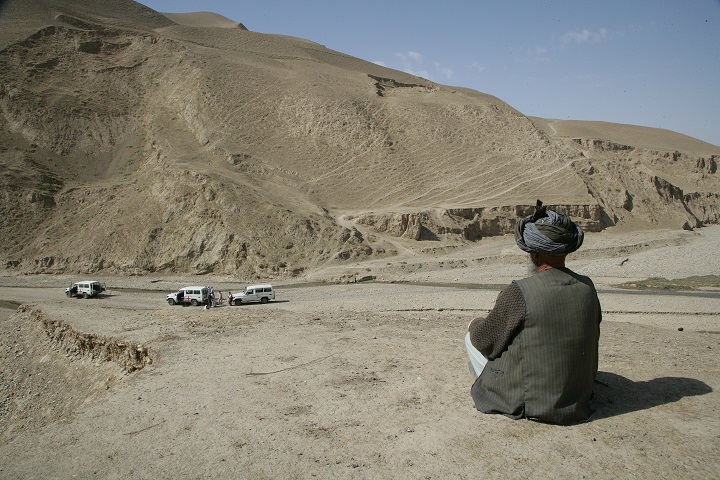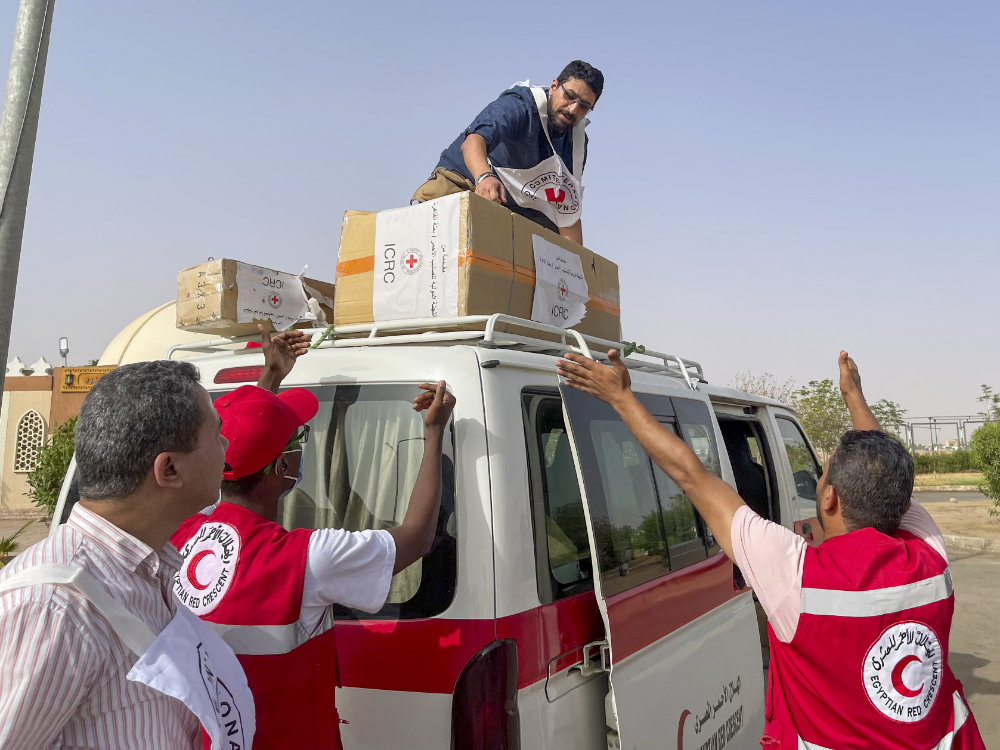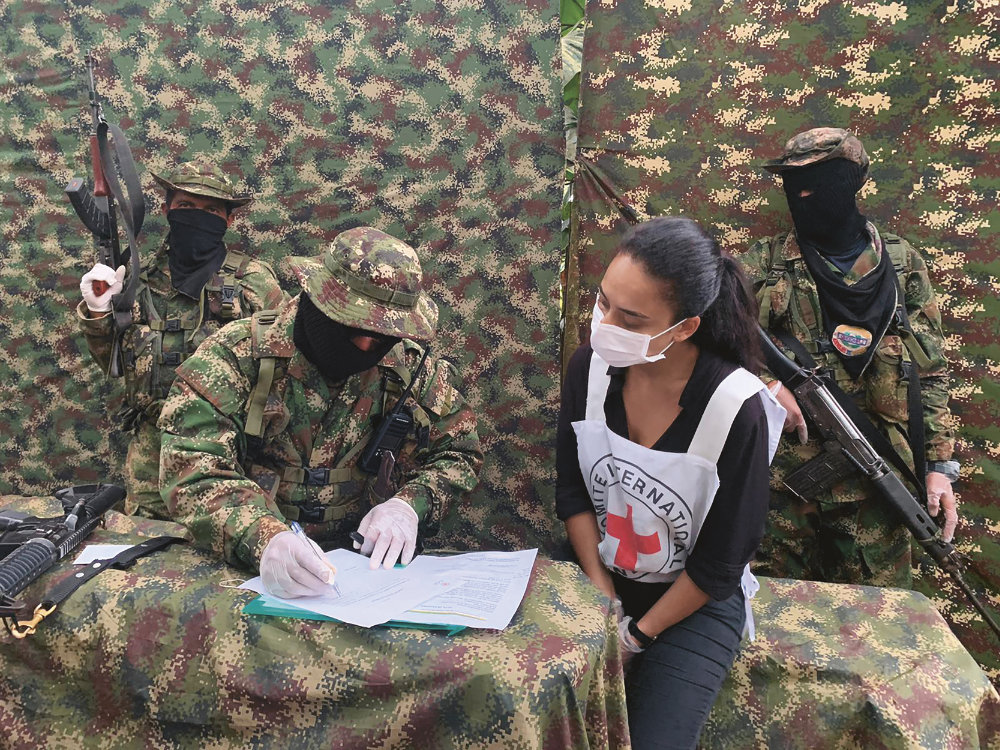On 22 December 2021, the United Nations Security Council voted unanimously to adopt a resolution on Afghanistan introducing, for only the second time in 30 UN sanction regimes, an explicit humanitarian carve-out. For those providing humanitarian assistance and supporting basic human needs in Afghanistan, donors, and private partners, the exemption gives much-needed assurance that they can continue their operations in Afghanistan without fear they are running afoul of UN sanctions against members of the Taliban and associated persons and entities, as well as the Haqqani Network.
What is a humanitarian carve-out, why was it so urgently necessary in the first place, and where do we go from here? In this post, Helen Durham, ICRC Director of Law and Policy in Geneva, and Chris Harland, ICRC Legal Adviser and Deputy Permanent Observer in New York, unpack the most pressing issues.
Following the Taliban’s rapid advance across Afghanistan in August 2021, the level of humanitarian needs skyrocketed. More than 22 million Afghans faced emergency or crisis levels of acute hunger. The pediatric ICU in Mirwais Regional Hospital saw its admissions double. Cash shortages incapacitated healthcare infrastructure in the delivery of care. Humanitarian aid providers were on the ground and ready to provide life-saving assistance and protection, but they faced numerous obstacles, including mandatory UN sanctions.
With their origins in resolutions prior to 2001, the current UN Taliban-focused sanctions date to 2011, when the Security Council established Security Council Resolution 1988 requiring UN Member States to implement an asset freeze, travel ban, and arms embargo on members of the Taliban and related entities. With the Taliban once again controlling the territory of Afghanistan, many of the men who filled the de facto cabinet and those in charge of de facto government ministries are designated on the list of sanctioned Taliban or Haqqani Network individuals, while the Haqqani Network itself is also designated.
As humanitarian organizations regularly deal with government ministries out of operational necessity, this twist of events resulted in considerable uncertainty as to whether humanitarian organizations could continue to transact with these entities, given the broad wording in the ‘asset freeze’ portion (paragraph 1(a)) of Resolution 2255, requiring States to ‘ensure that neither these nor any other funds, financial assets or economic resources are made available, directly or indirectly for such persons’ benefit’.
This sudden limbo posed major operational difficulties. Donors told humanitarian actors that their domestic laws required by the UN sanctions caused legal and political obstacles to supporting certain ICRC projects if they might come into economic contact with listed individuals, including those heading government ministries with which the ICRC operated. Just at the time when the humanitarian needs in Afghanistan dramatically increased, humanitarian aid faced cuts by some donors, even if the intention to provide support remained.
Resolution 2615: ‘humanitarian assistance . . . not a violation’
For several months following the Taliban takeover in August 2021, humanitarian agencies and organizations were vocal about the need for a humanitarian carve-out in the Taliban sanctions regime. Many different organizations supported this and worked towards it – balancing the local needs and understandings with diplomatic and security considerations of UN Member States – to make a real difference to the people of Afghanistan. OCHA and other UN bodies, the ICRC, and numerous NGOs, including the Norwegian Refugee Council and the International Rescue Committee, intervened with Security Council Member States as the negotiations continued, regarding their as well as national organizations’ difficulties operating in Afghanistan because of the Taliban sanctions regime.
From October to December, Council Member States debated how to best strike the balance between enabling life-saving aid and avoiding a ‘windfall’ to the Taliban, as one diplomat put it. After two months of negotiations, the Council reached a compromise and adopted Resolution 2615, only the second of its kind, the first being an exemption in the Somalia (Al-Shabaab-related) sanctions regime. These carve-outs are directed to organizations carrying out humanitarian activities and go beyond individual exemptions, in which those listed can ask for access to their own funds for legal, medical and religious reasons, which exist in most sanctions regimes.
In Resolution 2615, the Security Council decides that ‘humanitarian assistance and other activities that support basic human needs in Afghanistan are not a violation’ of the Taliban sanctions regime asset freeze. It allows all providers of humanitarian assistance to continue their operations in Afghanistan without fear that they will face accusations of violating UN-mandated sanctions.
The Resolution explicitly ‘decides’ (and is therefore mandatory for all UN Member States under Article 25 of the UN Charter) that the financial transactions required to ensure delivery of humanitarian assistance are permitted. On the other hand, it ‘strongly encourages’ providers to ‘minimize accrual’ of funds to listed individuals and entities. This carve-out appears to have no sunset clause, although the Council is to ‘review’ the implementation of the carve-out after one year.
What comes next?
Resolution 2615 alone does not solve the operational difficulties facing humanitarian organizations operating in Afghanistan. As with other Security Council resolutions, 2615 must be implemented into national policy. For example, immediately after the adoption of the resolution, the United States announced that it had followed the procedure laid out in its domestic sanctions law to grant new general licenses for humanitarian aid providers to operate in Afghanistan. As a matter of international law, all UN Member States are required to comply with Resolution 2615, but it may take time before the carve-outs are reflected in domestic law. It will be important for humanitarian aid providers and the Security Council to pay attention to how Member States translate the humanitarian carve-out into their domestic legislation and policy.
The Emergency Relief Coordinator (the Head of OCHA) is to brief the Security Council every six months following the adoption of Resolution 2615, meaning that the first briefing on the issue is set to take place in June 2022. Providers are ‘requested’ to provide information about the carve-out to OCHA in the preparation for this brief.
The Taliban sanctions regime is but one of the 14 current UN sanctions regimes in force. Resolution 2615 is a step in the right direction toward striking the proper balance between sanctions and humanitarian action, and it has the potential to lay the groundwork for further progress in this area. Other Security Council sanctions and counterterrorism frameworks would benefit from similar treatment.
A lifted roadblock, not a panacea
Though the adoption of a humanitarian carve-out in the UN Taliban sanctions regime was a crucial first step in addressing the humanitarian crisis in Afghanistan, it does not, on its own, resolve the dire humanitarian needs of the Afghan people. It is an important removal of a roadblock, not a panacea. It clears our path of vision so we can continue focusing our energy on the real objective: providing protection and assistance to the families affected by the conflict and violence plaguing the country.
More than half the population of Afghanistan faces acute food insecurity. The Secretary-General has launched a flash appeal calling for 606 million USD in humanitarian assistance for the country, in virtually every critical sector, including food security and agriculture, education, water, sanitation and hygiene, health, nutrition, and protection. It will be critical in the coming months, particularly through the Afghan winter – with reports of people burning furniture, shoes, and tires to keep warm – for donors to step up and make sufficient contributions to the humanitarian effort there. Resolution 2615 removes existing obstacles for them to take these next critical steps for the people of Afghanistan.
See also
- Ariana Lopes Morey, Menty Kebede, Matt Pollard, Beyond access: three considerations for food security and famine prevention during armed conflict, April 24, 2022
- Florian Titze, The nature-security nexus and the UN Security Council, October 14, 2021
- Vincent Graf Narbel, Justinas Sukaitis, Biometrics in humanitarian action: a delicate balance, September 2, 2021
- Jelena Pejic, Irénéé Herbet, Tilman Rodenhäuser, ICRC engagement with non-State armed groups: why and how, March 4, 2021







Comments